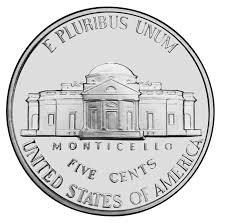Like most guys (and this is statistically true), I keep my spare change instead of doing something useful with it, like using it.
At the end of the day, I drop whatever spare coins I have into a plastic jar with the lid cut off. Every four or five months, I lug the 400-pound jug of coins to Coinstar, which tallies the total and rips me off 9% for the counting effort.
That money, in turn, is used on crap. Magic tricks, gadgets and whatzits, candy bars.
But I recently read a story that let me know just how much I was getting ripped off. By the government, no less.
The study by the U.S. Mint found that it cost 1.7 cents to produce a penny, eight cents to produce a nickel. 
According to the Treasury’s biennial report to Congress, the government takes a loss of $90.5 MILLION a year in manufacturing the coins, which have become, quite literally, trash for many Americans. The same study found that 2% of americans throw away spare pennies instead of collecting them in a piggy bank, which is becoming about as useful as a pay phone nowadays.
“There are no alternative metal compositions that reduce the manufacturing unit cost of the penny below its face value,” the report to Congress said.
The government makes a mint on other coins. A dime costs 3.9 cents to make, and a quarter 9 cents. All together, the Mint made $289.1 million on seigniorage–the difference between the value of the coin and the cost to make it–despite a $90.5 million drag from the penny and nickel.
I’ve always had a thing for coins. Being a wannabe magician requires you befriend them.
So did being a crime writer all my life. In my first weekend covering cops in Washington DC, a homeless man who called himself Blelvis the Black Elvis approached me for any spare change. Unaware how common panhandling was in DC (in Detroit they just take your wallet), I made the mistake of reaching into my pocket to rummage. That, apparently, is the universal sign language for ‘sucker.’
All I had was 11 cents, a dime and a penny. I apologized and told him that was the sum of my portable wealth.
“That’s more money than I had five seconds ago, thank you,” he replied.
Then he broke into a brief, drunken rendition of Blue Suede Shoes. I’ve paid a lot more for a lot less in return on investment in my life.
Since that day, I have a rule of thumb: If I drop a penny, it stays wherever it fell. If I find a penny, it goes into my pocket, with a wish. Usually it’s that Blelvis has enough change to croon You Ain’t Nothin’ But a Hound Dog.
Rock on, Abe.

